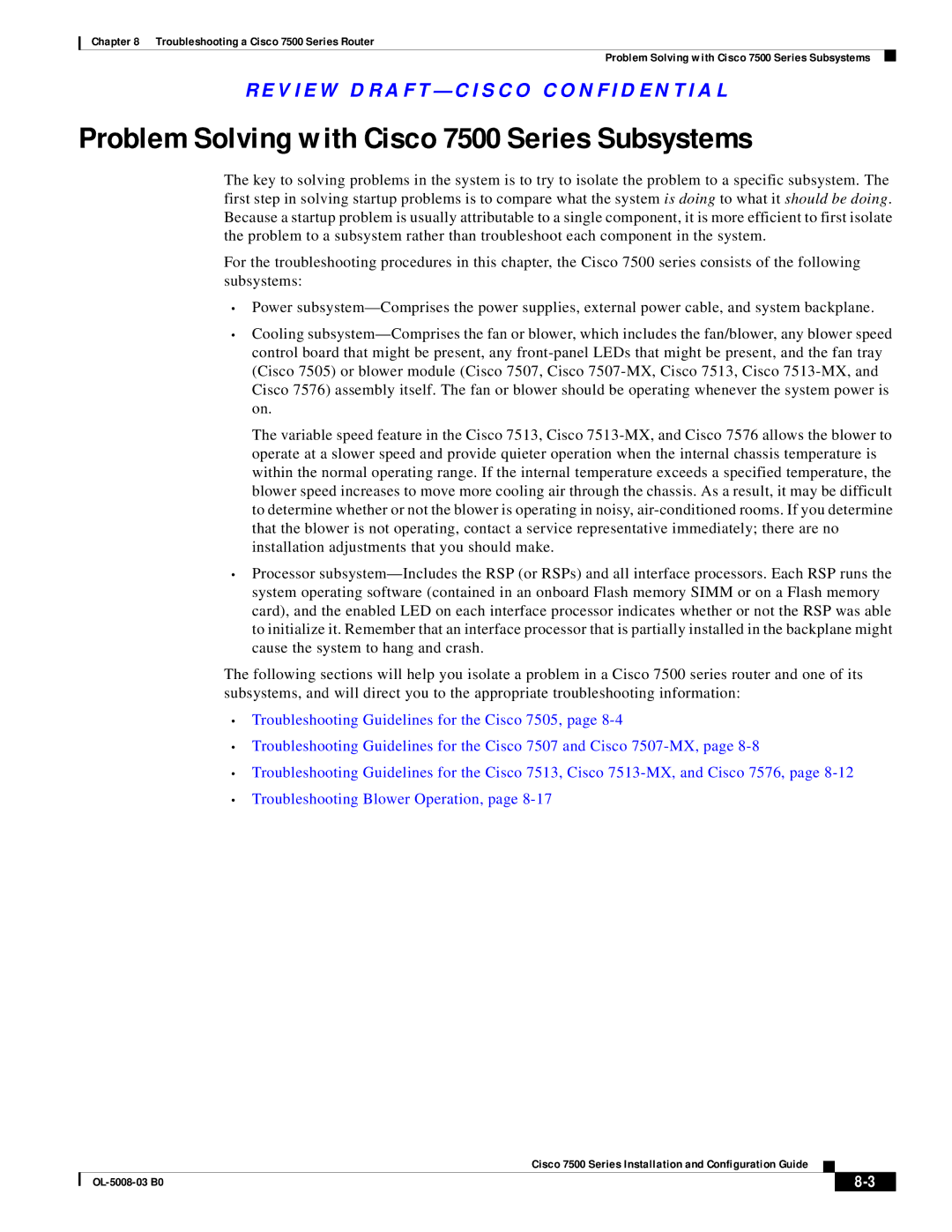Chapter 8 Troubleshooting a Cisco 7500 Series Router
Problem Solving with Cisco 7500 Series Subsystems
R E V I E W D R A F T — C I S CO CO N F I D E N T I A L
Problem Solving with Cisco 7500 Series Subsystems
The key to solving problems in the system is to try to isolate the problem to a specific subsystem. The first step in solving startup problems is to compare what the system is doing to what it should be doing. Because a startup problem is usually attributable to a single component, it is more efficient to first isolate the problem to a subsystem rather than troubleshoot each component in the system.
For the troubleshooting procedures in this chapter, the Cisco 7500 series consists of the following subsystems:
•Power subsystem—Comprises the power supplies, external power cable, and system backplane.
•Cooling subsystem—Comprises the fan or blower, which includes the fan/blower, any blower speed control board that might be present, any front-panel LEDs that might be present, and the fan tray (Cisco 7505) or blower module (Cisco 7507, Cisco 7507-MX, Cisco 7513, Cisco 7513-MX, and Cisco 7576) assembly itself. The fan or blower should be operating whenever the system power is on.
The variable speed feature in the Cisco 7513, Cisco 7513-MX, and Cisco 7576 allows the blower to operate at a slower speed and provide quieter operation when the internal chassis temperature is within the normal operating range. If the internal temperature exceeds a specified temperature, the blower speed increases to move more cooling air through the chassis. As a result, it may be difficult to determine whether or not the blower is operating in noisy, air-conditioned rooms. If you determine that the blower is not operating, contact a service representative immediately; there are no installation adjustments that you should make.
•Processor subsystem—Includes the RSP (or RSPs) and all interface processors. Each RSP runs the system operating software (contained in an onboard Flash memory SIMM or on a Flash memory card), and the enabled LED on each interface processor indicates whether or not the RSP was able to initialize it. Remember that an interface processor that is partially installed in the backplane might cause the system to hang and crash.
The following sections will help you isolate a problem in a Cisco 7500 series router and one of its subsystems, and will direct you to the appropriate troubleshooting information:
•Troubleshooting Guidelines for the Cisco 7505, page 8-4
•Troubleshooting Guidelines for the Cisco 7507 and Cisco 7507-MX, page 8-8
•Troubleshooting Guidelines for the Cisco 7513, Cisco 7513-MX, and Cisco 7576, page 8-12
•Troubleshooting Blower Operation, page 8-17
Cisco 7500 Series Installation and Configuration Guide

